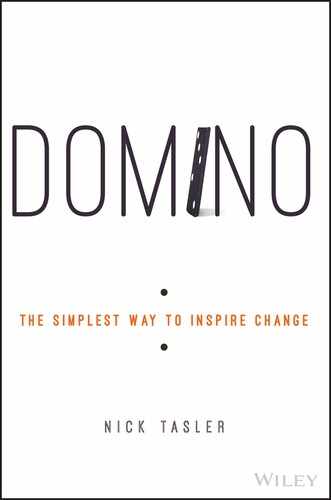23
Scientific Management 2.0: From Taylorism to Taslerism
If you want to see some of the most pleasant people in the world turn rabid, walk into a room of passionate human resources professionals and say, “Frederick Winslow Taylor is my hero.”
Frederick Taylor and his methods, known as Taylorism, are commonly regarded as one of the great dehumanizing forces of the Industrial Age. His villainous emphasis on ruthless efficiency made stopwatches a manager's best friend and reduced human beings to little more than the interchangeable parts they assembled as quickly as possible day after monotonous day.
Taylorism is also known as scientific management. That's unfortunate, because the true scientific method could be one of the most rehumanizing forces in the modern working world. It acknowledges the potential of human endeavor while fully accounting for the limitations of human knowledge about the future. What's more, the scientific method provides a brilliantly simple framework for dealing with uncertainty.
At its heart, the scientific method is all about testing hypotheses. It goes like this:
- We examine the current state of knowledge on a subject.
- We generate a hypothesis that might explain things that we don't yet know (i.e., an educated guess—and can we pretty please stop kidding ourselves and acknowledge the fact that even data-driven guesses are still just guesses?).
- We test our hypothesis with experiments whenever possible, or with observations and field studies when controlled experiments aren't possible.
- We analyze those results and generate more hypotheses to be tested again and again and again.
- When you've tested enough hypotheses and made enough careful observations, you can craft a theory.
That is science. I believe it should also be management. Only the words need to change. In the realm of management, hypotheses become decisions, hypotheses are tested during execution, and the resulting theories are strategies. Let's call this Scientific Management 2.0. Or just to stroke my ego, feel free to call it Taslerism. But, my fragile ego aside, you should know that I'm actually near the tail end of a long line of managers and thinkers who have been preaching and promoting highly effective and comprehensive versions of Scientific Management 2.0.1
The science I'm talking about here is about more than just data collection. Not everything can be reduced to a controlled experiment à la A/B testing on a web page—believe me I wish it could. The science I'm talking about is more a way of thinking. It's about a mindset that is both decisive and change-ready. I'm not advocating a close-your-eyes-and-throw-darts-at-the-wall mindset. What I'm talking about is a system of thinking and leading that is based on, first, making clear decisions to go in one direction and not others, rather than limping along with wishy-washy, hedge-our-bets, straddle-two-lanes-at-once approaches.
Second, we would make sure that we constantly remind ourselves—and one another—that every decision is merely a hypothesis. That means we would spend less time up front reading tea leaves in a vain attempt to make the right decision, and more time actively experimenting in order to make whatever we decide turn out right. No matter how firm and certain the decision seemed at the time, every decision must be regarded as a hypothesis. That means it must be tested by time and circumstances. Sometimes the guess turns out to be wrong, in which case we make another decision and test that one. Other times the guess will be absolutely right based on the state of the world a month ago, but now it needs to be adjusted based on the state of things today.
If every person in the organization knew that this was the way the organization functioned—if every manager were trained to think this way, then leaders could feel free to adapt to changes with speed and agility, without everyone else on the team rolling their eyes and thinking, “Oh great. A new flavor of the month is upon us….”
With the ADAPT framework I've tried to provide a way for you to apply this mindset to the everyday challenges of leading a team in the midst of constant change. It's possible that this way of thinking and leading could make organizations more efficient while making leaders more agile and work more rewarding.
A boy can dream, can't he?
